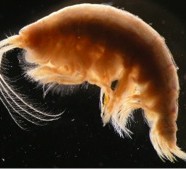OSPAR loses the Arctic
Report
OSPAR comes from the fusion in 1992 of the Paris Convention for the Prevention of Marine Pollution from Land-based Sources and the Oslo Convention for the Prevention of Marine Pollution by navy and aircraft immersion operations. The latter was initiated following the shock of the oil spill from the Torrey Canyon March 18, 1967.
OSPAR is dedicated to the protection of the northeast Atlantic Ocean. It is a pilot fish. The work of its 5 committees – Biodiversity, Offshore Industry, Radioactive Substances, Environmental Impact of Human Activities, Hazardous Substances and Eutrophication – allows better understanding and combat of the many pressures on marine ecosystems from the open sea of Portugal to the Arctic Ocean. This success is notably materialized by a quality status report without concession of the OSPAR zone in 2010 (1). Seven years later, the OSPAR pilot fish is threatened of asphyxia by the Arctic countries. Robin des Bois has returned from the Biodiversity and Offshore Industry committees which gathered in Berlin and in Oslo the first two weeks of March.
OSPAR loses the Arctic
Report
OSPAR comes from the fusion in 1992 of the Paris Convention for the Prevention of Marine Pollution from Land-based Sources and the Oslo Convention for the Prevention of Marine Pollution by navy and aircraft immersion operations. The latter was initiated following the shock of the oil spill from the Torrey Canyon March 18, 1967.
OSPAR is dedicated to the protection of the northeast Atlantic Ocean. It is a pilot fish. The work of its 5 committees – Biodiversity, Offshore Industry, Radioactive Substances, Environmental Impact of Human Activities, Hazardous Substances and Eutrophication – allows better understanding and combat of the many pressures on marine ecosystems from the open sea of Portugal to the Arctic Ocean. This success is notably materialized by a quality status report without concession of the OSPAR zone in 2010 (1). Seven years later, the OSPAR pilot fish is threatened of asphyxia by the Arctic countries. Robin des Bois has returned from the Biodiversity and Offshore Industry committees which gathered in Berlin and in Oslo the first two weeks of March.
OSPAR loses the Arctic
Report
OSPAR comes from the fusion in 1992 of the Paris Convention for the Prevention of Marine Pollution from Land-based Sources and the Oslo Convention for the Prevention of Marine Pollution by navy and aircraft immersion operations. The latter was initiated following the shock of the oil spill from the Torrey Canyon March 18, 1967.
OSPAR is dedicated to the protection of the northeast Atlantic Ocean. It is a pilot fish. The work of its 5 committees – Biodiversity, Offshore Industry, Radioactive Substances, Environmental Impact of Human Activities, Hazardous Substances and Eutrophication – allows better understanding and combat of the many pressures on marine ecosystems from the open sea of Portugal to the Arctic Ocean. This success is notably materialized by a quality status report without concession of the OSPAR zone in 2010 (1). Seven years later, the OSPAR pilot fish is threatened of asphyxia by the Arctic countries. Robin des Bois has returned from the Biodiversity and Offshore Industry committees which gathered in Berlin and in Oslo the first two weeks of March.
OSPAR loses the Arctic
Report
OSPAR comes from the fusion in 1992 of the Paris Convention for the Prevention of Marine Pollution from Land-based Sources and the Oslo Convention for the Prevention of Marine Pollution by navy and aircraft immersion operations. The latter was initiated following the shock of the oil spill from the Torrey Canyon March 18, 1967.
OSPAR is dedicated to the protection of the northeast Atlantic Ocean. It is a pilot fish. The work of its 5 committees – Biodiversity, Offshore Industry, Radioactive Substances, Environmental Impact of Human Activities, Hazardous Substances and Eutrophication – allows better understanding and combat of the many pressures on marine ecosystems from the open sea of Portugal to the Arctic Ocean. This success is notably materialized by a quality status report without concession of the OSPAR zone in 2010 (1). Seven years later, the OSPAR pilot fish is threatened of asphyxia by the Arctic countries. Robin des Bois has returned from the Biodiversity and Offshore Industry committees which gathered in Berlin and in Oslo the first two weeks of March.
More transparency on the offshore and less light
Bonn
Plenary meeting – OSPAR Commission for the protection of the North-East Atlantic
So far from Guyana and yet so close, member states of the OSPAR Commission for the Protection of the North-East Atlantic in Bonn approached the offshore industry with Robin des Bois as their pilot fish. The area of competence of this international Commission extends from the arctic waters to Portugal.
Transparency
About 1,300 oil and gas offshore facilities are established in the OSPAR area, mainly in the North and Norwegian Seas. Pioneering in the field of ocean industrialization, this sector benefits from its geographical isolation. Robin des Bois proposed to the OSPAR member states to accurately map the oil rigs and label each of them with an identity voucher including key dates, water depth, drilling depth in the ocean floor, flags (certain drilling installations in the OSPAR zone are under Panama or Marshall Island flag), names of companies involved (owners, operators, managers, sub contractors…), accidents having occurred on site (fires, oil releases…) and main chronic emissions. This proposition was not greeted favorably by the UK delegation, neither was it by the International Oil and Gas Producers Association (OGP). Enforcing transparency is expensive whereas all the data is available on no free-of-charge databases, they say. These arguments were not convincing. France, Sweden, Spain, and Germany have supported Robin des Bois’s proposal. For once, the NGO will be invited to the next meeting of the offshore Experts Assessment Panel of OSPAR to itemize the project and its implementing means. Until now and for a long time, France had been represented on this panel by TOTAL. Has change finally occurred?









